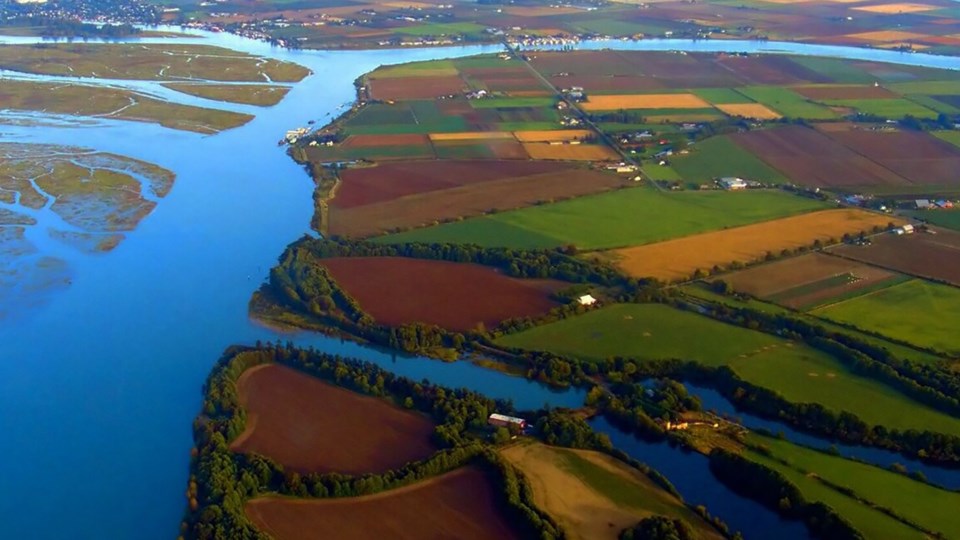The director of a documentary about protecting the Fraser River said maintaining farmland used to grow agriproducts in Richmond is important for saving river habitats.
The documentary, called The Watershed Guardians, embarks on a journey to meet with people who study and defend the Fraser River.
The screening will take place at the Britannia Shipyards Seine Net Loft on Saturday at 1:30 p.m., followed by a Q&A session with director Jocelyn Demers.
“The Fraser is clearly a beautiful river, but we have damaged it over the time, especially along the last 40 kilometres of the river, from the Fraser Surrey dock to the ocean,” said Demers to the Richmond News.
“The south part of the land, originally part of the delta for birds, fish and diverse wildlife, is now under development. For me, it is quite a shame.”
Demers said the Fraser estuary has depreciated around 80 to 85 per cent over the years, partly due to overdevelopment or development that doesn’t respect nature.
Many small estuaries that were once connected to the Fraser now are not going to the Fraser anymore, destroying local wildlife habitats.
The documentary outlined the locations of around 500 Fraser River doors and pumps, which, according to Demers, are like shredding machines, killing the fish that try to go through to get back to their streams.
Meanwhile, bird lives are also under threat as many migration routes are more or less in danger, including the Pacific Flyway, a major north-south flyway for migratory birds in America, extending from Alaska to Patagonia.
However, Demers said there are things we can do in Richmond to protect the river. One important way is to keep enough farms for farm activities around the Fraser River, so wild animals in the area will have a “buffer zone.”
“If there are enough farms producing food – in the best situation they are not using any chemicals – then they can play a role in the conservation of the habitat around the Fraser,” said Demers.
“The bird situation is a good example. They like to go to the buffer zones between fields. If you replace those farms with a new neighbourhood or a new industrial area, we will lose those habitats, while we are losing farm products.”
He said mass construction on farmland also damages ditches that connect farms and the water from Fraser River.
“In the past, 20 years ago or so, the system was letting some water from the river go to the ditches. Farmers were using ditches to water their farms,” explained Demers.
“Now, on one side, you have the farms and on the other side, you have condos - they destroyed the ditch system. The ditches are still there but there is no water in them for farmers.”
As a result, some farmers have to pay residential prices for tap water to irrigate their farms, instead of getting free water from the Fraser River, according to Demers.
“This is a big additional cost, especially for small farms. We need to re-establish the ditches,” said Demers.
“We talk about more and more importance of local food, organic food, but we have to take the right measures to make sure it will happen."
The documentary is aired as part of Richmond’s celebration of Canada’s Rivers to Oceans Week from June 8 to 14.



